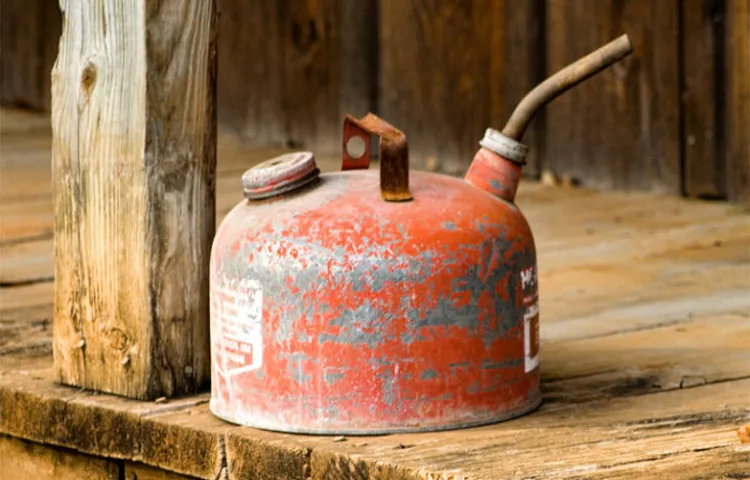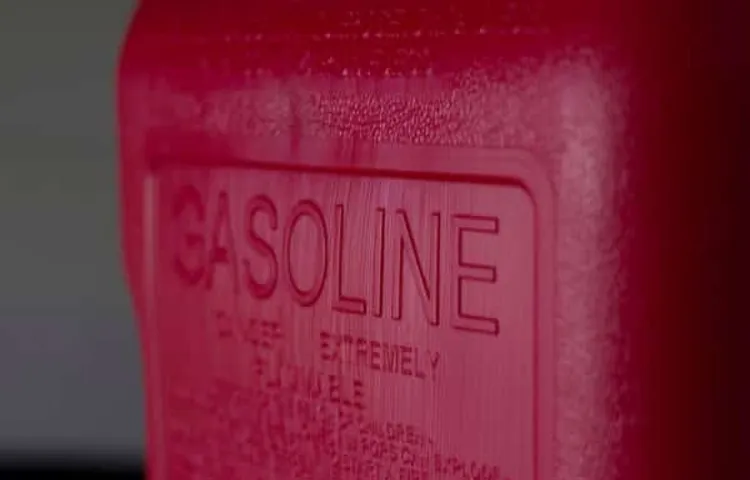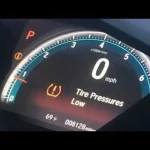Do you know how long gasoline can stay in your fuel tank before it loses its effectiveness? It’s a question that many car owners don’t think about until they have to deal with the consequences. Without proper care, gasoline can become stale and gum up your engine, causing costly repairs. This is where fuel stabilizers come in.
By adding a fuel stabilizer to your gas tank, you can extend the shelf life of your gasoline and prevent expensive engine damage. But how long can you expect your gasoline to last with a fuel stabilizer? Let’s dive in and explore the world of gasoline shelf life.
Table of Contents
What is Fuel Stabilizer?
Fuel stabilizer is an additive that helps reduce the effects of fuel aging and degradation over time. When gasoline is left unused for extended periods, it can break down and lose its potency, leading to engine problems and potential safety issues. Fuel stabilizer works by preventing the formation of gum and varnish deposits that can clog fuel lines and carburetors.
It also helps keep the fuel fresh for a longer period, extending the life of stored gas. So, how long will gasoline last with fuel stabilizer? Well, that depends on a variety of factors, such as the quality of the gasoline, how long it has been stored, and the conditions it has been exposed to. Generally, fuel stabilizer can keep gasoline fresh for up to 12 months, but it’s always best to follow the manufacturer’s instructions for the specific product being used.
Definition and How it Works
Fuel stabilizer is a chemical additive that is mixed with gasoline or diesel fuel to keep it stable and prevent it from degrading. It works by bonding with the fuel molecules and slowing down the natural process of oxidation, which causes fuel to break down over time. Fuel stabilizers are especially useful for consumers who store fuel for extended periods, such as boaters, RV owners, and farmers.
By adding fuel stabilizer to their fuel tanks, they can ensure that their fuel remains stable and usable for longer periods, without degrading or causing engine problems. Fuel stabilizers also help to prevent rust and corrosion in fuel tanks and other components, which can prolong the life of an engine or fuel system. In summary, fuel stabilizer is a relatively simple and effective way to extend the life of fuel and ensure engine performance, making it a must-have for anyone who depends on long-term fuel storage.

Types of Fuel Stabilizer
Fuel stabilizer If you’re an automobile enthusiast or own vehicles that you don’t use too often, you’ve probably heard of fuel stabilizer. As the name suggests, fuel stabilizer is something that keeps gasoline fresh and prevents it from breaking down over time. When gasoline sits in a fuel tank for too long, it can become gummy and thick, clogging the fuel system and causing wear and tear to the engine.
Fuel stabilizers come in different types, but the most commonly used ones are solvent-based and alcohol-based. Solvent-based stabilizers contain chemicals that break down stale fuel and remove any impurities, while alcohol-based stabilizers absorb moisture and prevent fuel oxidation. Depending on your needs, you can choose from a wide range of fuel stabilizers in the market.
They’re easy to use and can prolong the life of your fuel, making them a worthwhile investment if you want to keep your engine running smoothly.
Factors That Affect Gasoline Shelf Life
If you’re wondering how long gasoline will last, even with the aid of fuel stabilizers, there are several factors that can affect its shelf life. The quality of gasoline, temperature, humidity, and exposure to air all influence how long gasoline can be stored. Generally, gasoline can last for about six months to a year with the help of fuel stabilizers, depending on these environmental factors.
Fuel stabilizers play a vital role in slowing down the oxidation process, which is the main reason why gasoline degrades over time. They work by preventing water and debris from settling at the bottom of the fuel container, which can clog fuel lines and filters. But even with fuel stabilizers, it’s best to store gasoline in a cool, dry place, away from direct sunlight and flames.
Furthermore, using airtight containers can also help to ensure that the gasoline remains stable for an extended period. Remember that gasoline is a highly flammable liquid, and proper storage is essential to prevent accidents. In conclusion, with proper storage and the use of fuel stabilizers, gasoline can last for a year or more.
Type of Gasoline
Gasoline Shelf Life The type of gasoline you use can play a significant role in its shelf life. Different grades of gasoline have different chemical compositions and additives that can affect how quickly the gasoline breaks down. For instance, ethanol-blended gasoline tends to have a shorter shelf life than non-ethanol gasoline.
This is because ethanol is hygroscopic, meaning that it has a tendency to absorb moisture from the air, which can cause the gasoline to break down more quickly. Additionally, gasoline that contains premium or high-octane additives may have a longer shelf life than regular gasoline since these additives can slow down the oxidation process that causes gasoline to break down over time. It’s important to choose the right gasoline for your vehicle and storage needs to ensure that your gasoline stays fresh and usable for as long as possible.
Storage Environment
Gasoline shelf life can be affected by various factors, including storage environment. Temperature, humidity, and exposure to air can all impact the quality and lifespan of gasoline. High temperatures can cause gasoline to evaporate and degrade more quickly, while low temperatures can cause condensation and water buildup in the fuel tank, leading to rust and other issues.
Humidity can also contribute to the formation of water in the fuel, which can damage the engine. Furthermore, exposure to air can increase the likelihood of oxidation and spoilage of gasoline, reducing its efficacy. To maximize gasoline shelf life, it is important to store it in a cool, dry place that is away from direct sunlight and other sources of heat and moisture.
Additionally, fuel stabilizers can help to prevent oxidation and maintain gasoline quality over time. Overall, being mindful of these factors can help to extend the shelf life of gasoline and ensure optimal performance of engines in vehicles and equipment.
Amount of Fuel Stabilizer Used
Gasoline Shelf Life When it comes to the shelf life of gasoline, there are several factors that can affect its longevity. One essential factor is the amount of fuel stabilizer used. Fuel stabilizers are chemicals that can be added to gasoline to help prevent it from oxidizing and breaking down over time.
The amount of stabilizer required typically depends on the kind of fuel being used and how long it will be sitting idle. Adding too little stabilizer may not provide enough protection against oxidation, while adding too much can be wasteful and, potentially, even harmful to your engine. As a general rule, it’s best to follow the manufacturer’s instructions for the amount of fuel stabilizer to add to your gasoline.
This will help maximize its shelf life and ensure it remains safe to use. By taking care of your gasoline and using appropriate amounts of fuel stabilizer, you can help ensure your engine runs smoothly when you need it most.
How Long Does Gasoline Last with Fuel Stabilizer?
If you’re wondering how long gasoline lasts with fuel stabilizer, the answer depends on a few factors. First, you need to ensure the fuel stabilizer you use is high quality and designed to last a long time. Typically, a well-formulated stabilizer can keep gasoline fresh for up to two years if stored properly.
That means keeping the fuel in an airtight container, away from heat and light, and ensuring it’s not exposed to moisture. However, if your gasoline has already started to deteriorate or contains water, a stabilizer may not be able to save it. In these cases, you may need to consider pumping out the old fuel and starting fresh.
Overall, using a fuel stabilizer can extend the life of your gasoline, but it’s important to use the right product and storage methods to ensure it lasts as long as possible. So, how long will gasoline last with fuel stabilizer? It depends on how well you take care of it.
Average Shelf Life with Fuel Stabilizer
If you’re someone who uses gasoline as your primary fuel source, fuel stabilizer is an excellent investment to help your fuel last longer. Fuel stabilizer can extend the shelf life of gasoline, preventing it from degrading over time. So, how long does gasoline last with fuel stabilizer? Typically, gasoline can last up to a year with fuel stabilizer before it starts to degrade.
However, a few factors can affect the shelf life, such as the temperature and humidity of where you store the gasoline. Luckily, fuel stabilizer can provide some protection against these factors. Fuel stabilizer works by slowing down the chemical reactions that occur within gasoline, preventing it from breaking down and becoming contaminated.
When you add fuel stabilizer to your gasoline, it helps to preserve it, extending its shelf life. This means that if you store your gasoline properly and use fuel stabilizer, you can significantly extend the lifespan of your fuel, saving you time and money in the long run. But it’s essential to remember that fuel stabilizer won’t last forever.
Over time, it will break down, and you’ll need to replace it to continue protecting your gasoline. If you’re not sure how much fuel stabilizer to use or how to properly store your gasoline, it’s always a good idea to consult with a professional. In the end, investing in fuel stabilizer can help ensure that your gasoline lasts as long as possible, providing you with reliable fuel when you need it most.
Factors That Affect Shelf Life with Fuel Stabilizer
Fuel Stabilizer Fuel stabilizers are additives that help extend the shelf life of gasoline, particularly for vehicles and equipment that are stored for long periods. While fuel stabilizers can significantly increase the lifespan of gasoline, several factors can still affect how long it lasts. The quality of the gasoline and the conditions in which it’s stored are the most critical factors.
Gasoline that has been stored correctly, in an airtight container and in a cool, dry place, can last with a fuel stabilizer for up to two years without significant deterioration. However, if the gasoline is exposed to air, moisture, or high temperatures, its lifespan will decrease. For instance, gasoline stored in a canister with a loose or damaged cap corrodes faster than fuel stored in an airtight container.
Similarly, gasoline exposed to sun and heat will evaporate faster, causing it to lose its chemical properties. In general, with fuel stabilizer, gas has an average lifespan of one to three years, but several factors affect this estimate.
Tips for Maximizing Gasoline Shelf Life with Fuel Stabilizer
If you want to keep your gasoline fresh for longer periods, using a fuel stabilizer can help you achieve that goal. Fuel stabilizers are designed to prevent gasoline breakdown, which can happen after sitting idle in storage containers or fuel tanks for extended durations. The most common question people ask is how long the gasoline will last when using a fuel stabilizer.
The answer depends on the type of fuel stabilizer you use and the storage conditions. Most fuel stabilizers can prolong the gasoline shelf life for up to two years, but some go even further. If you store your gasoline in a cool, dry place, away from sunlight, and properly sealed, it could last longer.
However, it’s essential to keep in mind that fumes and vapors can still escape, leading to changes in gasoline’s chemical composition, causing it to lose its strength and efficacy. It’s vital to use a fuel stabilizer made from high-quality ingredients and to follow the manufacturer’s instructions regarding the correct dosage and storage guidelines. Doing so can ensure that your gasoline remains usable and safe to use for a more extended period, saving you money and time in the long run.
Conclusion
In conclusion, fuel stabilizer can help extend the lifespan of gasoline by preventing oxidation and degradation. However, no one can definitively predict how long gasoline will last with the use of stabilizer. It ultimately depends on several factors including the quality of the gasoline, the amount of stabilizer used, storage conditions, and more.
So, if you’re looking for a concrete answer to how long gasoline will last with fuel stabilizer, you’re out of luck. But, one thing is for sure, using stabilizer is a smart move for anyone who wants to ensure their gasoline remains usable for as long as possible. As the old saying goes, “better safe than sorry!”
FAQs
What is fuel stabilizer and how does it work to extend gasoline lifespan?
Fuel stabilizer is a chemical additive that helps preserve gasoline by preventing oxidation and buildup of harmful deposits. It works by binding with gasoline molecules and forming a protective layer that slows down the degradation process.
How long can gasoline last with fuel stabilizer?
The lifespan of gasoline with fuel stabilizer depends on various factors like the quality of gasoline, storage conditions, and type of stabilizer. Generally, gasoline can last up to 1-3 years with added fuel stabilizer.
Can you use fuel stabilizer in any type of gasoline engine?
Yes, fuel stabilizer can be used in any type of gasoline engine including cars, boats, motorcycles, lawnmowers, and generators. It is especially useful for engines that are not used frequently or are stored for extended periods.
Is it safe to mix fuel stabilizer with gasoline?
Yes, it is safe to mix fuel stabilizer with gasoline as the stabilizer is specifically designed for gasoline engines. However, it is important to follow the manufacturer’s instructions and not exceed the recommended dosage.
What are the signs of bad gasoline and how can fuel stabilizer prevent it?
Bad gasoline can cause poor engine performance, hard starting, and reduced fuel efficiency. Fuel stabilizer can prevent these issues by ensuring that gasoline remains fresh and free of harmful contaminants like water and sediment.
Can fuel stabilizer improve gasoline octane rating?
No, fuel stabilizer cannot improve the octane rating of gasoline. Its primary function is to preserve the quality and performance of gasoline, not to increase its chemical composition.
How often should fuel stabilizer be added to gasoline?
It is recommended to add fuel stabilizer to gasoline every time you fill up your tank. This will ensure that your engine is protected from the harmful effects of deteriorating gasoline and will extend the lifespan of your fuel.



